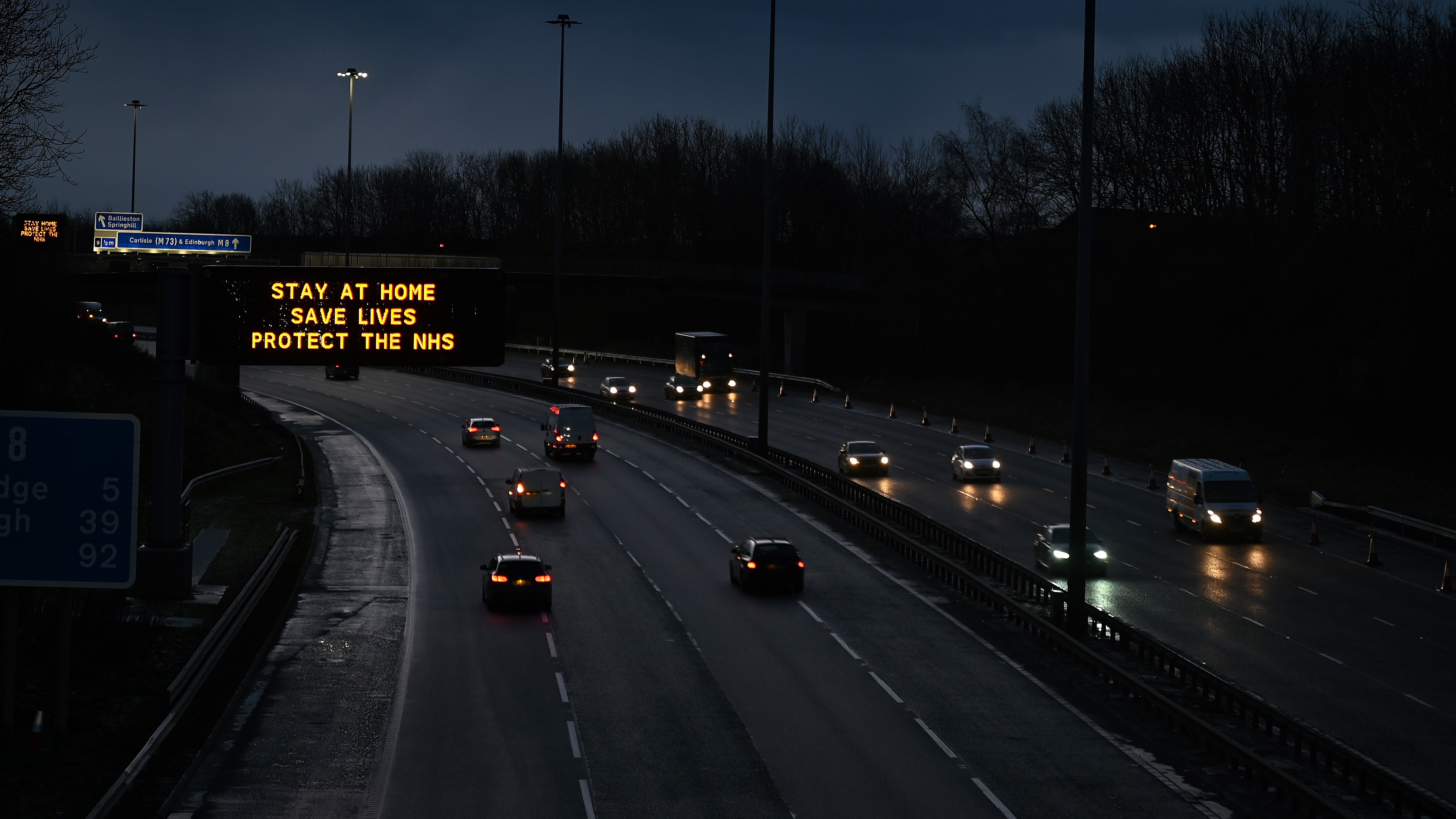Why is the roadmap out of the UK’s ‘final lockdown’ so long?
Plans to ease restrictions faster were shelved after warning from government advisers

A free daily email with the biggest news stories of the day – and the best features from TheWeek.com
You are now subscribed
Your newsletter sign-up was successful
Lockdown, we now know, will end not with a bang but with a whimper, as restrictions are rolled back in a four-stage plan spanning five months.
The timescale of Boris Johnson’s roadmap to end the UK’s third and final lockdown has left some sceptical Tory MPs angry over further damage to sectors such as hospitality and travel that have already been battered by 12 months of lockdown rules.
But papers released by the Scientific Advisory Group for Emergencies (Sage) have provided some insight into why the prime minister is moving so cautiously in his effort to return the country to normal life.
The Week
Escape your echo chamber. Get the facts behind the news, plus analysis from multiple perspectives.

Sign up for The Week's Free Newsletters
From our morning news briefing to a weekly Good News Newsletter, get the best of The Week delivered directly to your inbox.
From our morning news briefing to a weekly Good News Newsletter, get the best of The Week delivered directly to your inbox.
Slow and steady
Johnson last night revealed his plan to phase out restrictions, calling it a “one-way road to freedom”, with no further lockdowns.
But “under an initial scenario” drawn up by No. 10, “outdoor pubs and restaurants, outdoor attractions and non-essential shops would have reopened in time for the Easter Bank Holiday weekend”, The Telegraph reports.
The proposal was dropped “after scientists warned the government that it could lead to an extra 55,000 deaths” and a rise in the R rate of “as much as 0.5”, the paper adds.
A free daily email with the biggest news stories of the day – and the best features from TheWeek.com
Led by Professor Neil Ferguson, the expert behind the government’s first lockdown in March 2020, Imperial College London researchers found that a return to al fresco dining and outdoor activities in March was too risky as “vaccines are not perfect and uptake will never be 100%”, the Daily Mail says.
Their modelling suggested that “there would be at least another 30,000 Covid deaths even in the ‘most optimistic’ scenario,” adding that “if all restrictions were lifted completely at the end of April there would be a dramatic spike in cases that could see around 91,000 further deaths.”
The experts “insisted that without a gradual route back to normality, the pressure on NHS hospitals would peak in June at nearly 60,000 coronavirus inpatients – higher than even last month's peak of nearly 40,000”, it adds.
A Downing Street spokesperson told The Telegraph that plans to open more outdoor activities in March were never official policy, adding: “Five different scenarios were modelled, and there was never a preferred outcome.”
Stephen Reicher, a psychology expert at St Andrews University and a member of Sage, last night tweeted that the modelling shows why “it's not enough to vaccinate and open up”, adding that what was needed was “a comprehensive strategy which combines vaccination with infection suppression”.
Johnson has been criticised through the pandemic for diverging from the advice of his scientific advisers. But this time he appears to have heeded their calls for caution.
Still too fast?
The researchers at Imperial College London provided the government with a series of potential roadmaps for lifting lockdown, but “ministers did not opt for any of the oven-ready scenarios”, the Daily Mail says.
The government instead “created a hybrid version” that “brings forward some relaxations and pushes others back, meaning England has to wait at least 118 days to be free of all restrictions”, the paper adds.
If the intention was to avoid a backlash from the lockdown-sceptic Covid Recovery Group, it has not worked. But at the other end of the spectrum, it has also caused concern among some who worry that the government is moving too fast.
Relaxing measures too quickly could increase the chances of a new, more dangerous variant emerging, requiring a return to full lockdown. Politico’s London Playbook reports that Richard Sloggett, a former adviser to Health Secretary Matt Hancock, is pushing for the UK to become a coronavirus “green zone”.
The chair of research centre Future Health argues that the UK should aim for fewer than 1,000 infections per day as any alternative risks “a late spring, early summer high and then further restrictions later in the year”.
Johnson appears to have picked his experts for this decision, however, saying yesterday that there is “no credible route to a zero-Covid Britain or a zero-Covid world”. Pencil the dates in your diaries; the clock is ticking on lockdown.
Joe Evans is the world news editor at TheWeek.co.uk. He joined the team in 2019 and held roles including deputy news editor and acting news editor before moving into his current position in early 2021. He is a regular panellist on The Week Unwrapped podcast, discussing politics and foreign affairs.
Before joining The Week, he worked as a freelance journalist covering the UK and Ireland for German newspapers and magazines. A series of features on Brexit and the Irish border got him nominated for the Hostwriter Prize in 2019. Prior to settling down in London, he lived and worked in Cambodia, where he ran communications for a non-governmental organisation and worked as a journalist covering Southeast Asia. He has a master’s degree in journalism from City, University of London, and before that studied English Literature at the University of Manchester.